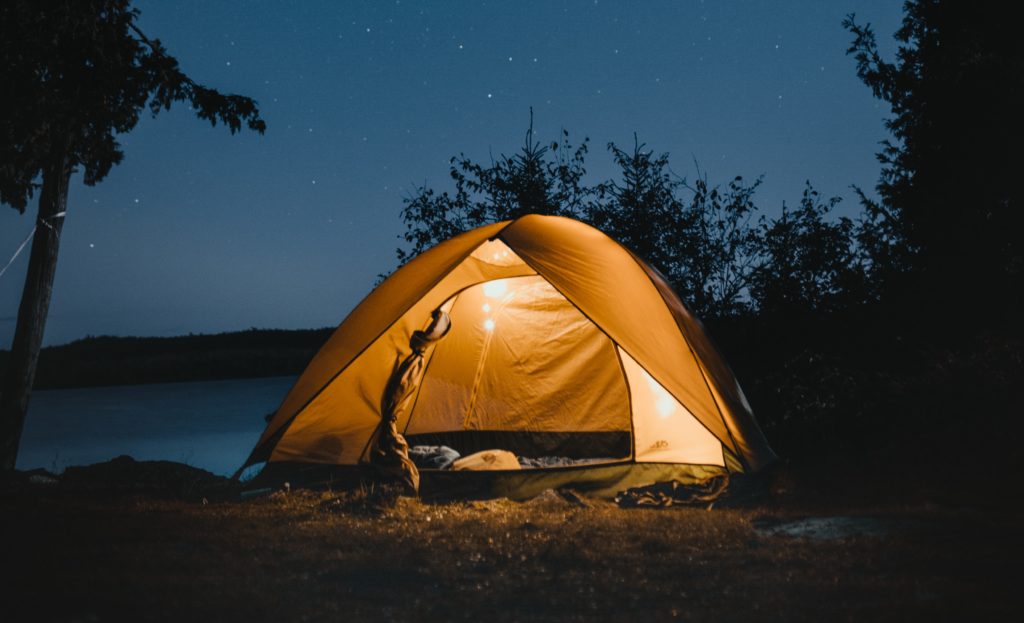Camping and Catching Z's: Sleep Tips for Restful Nights in the Great Outdoors

Camping is a wonderful way to escape the hustle and bustle of everyday life and reconnect with nature. However, spending nights under the stars can sometimes be a challenge when it comes to getting a good night's sleep. Uneven terrain, unfamiliar sounds, and unpredictable weather can all conspire to disrupt your slumber.
Fortunately, with the right preparation and a few helpful tips, you can ensure restful nights during your camping adventures. In this article, we will explore some valuable sleep tips to make your camping experience more enjoyable and rejuvenating.
- Choose the Right Campsite
Selecting the right campsite is crucial for a good night's sleep. Look for a flat and level area to pitch your tent, as this will provide you with a more comfortable sleeping surface. Avoid low-lying areas that might collect moisture and opt for higher ground to prevent water from pooling around your tent.
- Invest in Quality Gear
Investing in quality camping gear can significantly improve your sleeping experience. A comfortable sleeping bag and a suitable sleeping pad or air mattress can make a world of difference. Ensure your gear is appropriate for the expected weather conditions, whether you're camping in hot summer months or chilly fall nights.
- Test Your Gear Before You Go
Before embarking on your camping trip, set up your tent and inflate your sleeping pad or mattress at home to ensure they are in good working order. This not only helps you familiarize yourself with your equipment but also allows you to identify and address any issues before you're in the wilderness.
- Dress Appropriately
Pack clothing suitable for the expected weather conditions, but also consider layers. Weather in the great outdoors can change rapidly, so being prepared with layers can help you regulate your body temperature for a comfortable night's sleep. Don't forget a warm hat and some extra socks to keep your extremities warm.
- Use Earplugs
Nature is full of sounds, some of which can be disruptive when you're trying to sleep. Using earplugs can help dampen noise from nearby campers, wildlife, or the elements. Alternatively, you can listen to soothing nature sounds or soft music with headphones to drown out unwanted noise.
- Embrace Natural Sleep Aids
If you have trouble falling asleep in unfamiliar surroundings, consider natural sleep aids. Melatonin supplements or herbal teas like chamomile or valerian root can help relax your mind and promote better sleep. Consult with a healthcare professional before trying any supplements, especially if you have underlying health concerns.
- Maintain a Consistent Sleep Schedule
Even in the wilderness, maintaining a consistent sleep schedule can improve your sleep quality. Try to go to bed and wake up at the same time each day, as this helps regulate your body's internal clock, making it easier to fall asleep and wake up refreshed.
- Minimize Screen Time
The soft glow of a campfire is an ideal way to unwind before bedtime, but the harsh light of electronic devices can disrupt your sleep. Try to limit screen time in the evening hours, and if you do use your phone or tablet, consider using a blue light filter to reduce the impact on your sleep cycle.
- Stay Hydrated and Watch Your Diet
Hydration is essential, but be mindful of how much you drink before bedtime to avoid waking up in the middle of the night to use the restroom. Additionally, be cautious with heavy or spicy meals close to bedtime, as they can lead to discomfort and indigestion.
- Practice Relaxation Techniques
Engage in relaxation techniques such as deep breathing, meditation, or gentle stretches before bed to calm your mind and prepare for a restful night's sleep. These practices can help you unwind and ease any tension or anxiety from the day's activities.
Camping offers a unique opportunity to connect with nature, but a good night's sleep is essential to fully enjoy the experience. By following these sleep tips for camping, you can ensure restful nights under the stars and wake up feeling refreshed and ready for new outdoor adventures. Remember to be prepared, stay comfortable, and embrace the tranquility of the wilderness to make your camping trip a memorable and rejuvenating experience.




